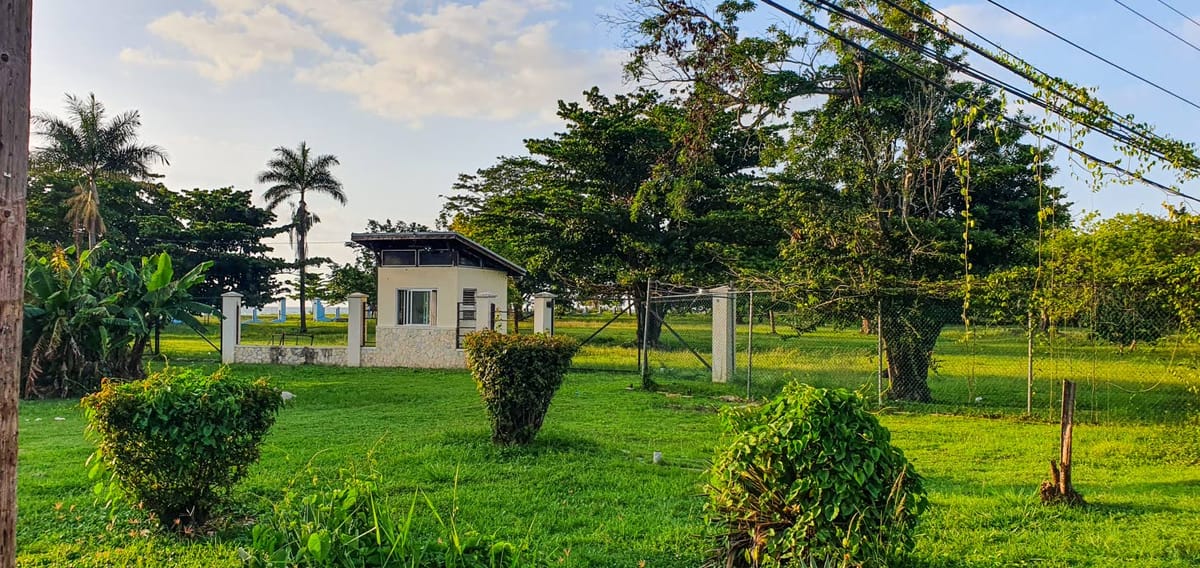Desalination, reuse of wastewater mooted as solutions for Negril - Jamaica Observer

Source: Jamaica Observer
NEGRIL, Westmoreland -- A civil engineer who specialises in water treatment and is familiar with the National Water Commission (NWC) system has suggested desalination and the reuse of waste water as options for water-starved Negril.
According to Dick Hooijschuur, while desalination (the removal of salt from seawater) has always been seen as an expensive and energy-intensive process, he believes technological improvements and a reduction in the cost of solar energy could mean it is now time for Jamaica to explore that option.
"The cost of desalinated water is about US$1 a cubic metre -- probably a lot cheaper than the water that you are trucking. If it comes to a certain amount of skills and you are able to power your desalination plant with solar -- which is very much possible and we are in the right area for that -- you could bring that cost down," he said on Saturday during a community meeting in Negril.
Hooijschuur suggested that a desalination plant could be constructed on the underutilised Norman Manley Beach Park, which has become an eyesore in the town.
During the opening of the 'Welcome to Negril' sign in 2022, Tourism Minister Edmund Bartlett said the park is slated to be transformed into a Harmony Park-like public access facility that will provide a much-needed green space for recreational activities. The park has been closed to the public since 2014.
Turning his attention to the reuse of waste water, the civil engineer said this method produces water of better quality than what is currently obtained from Jamaica's method of treating potable water. He conceded, however, that treated sewage water is a touchy topic.
Hooijschuur said he recently completed a project in The Philippines and will be heading to Singapore as the project manager for the construction of a potable water reuse plant there. Singapore, which is without river sources, currently gets a portion of fresh water from Malaysia and 40 per cent from reclaimed water.
"The reclaimed water is of a higher purity than our drinking water here in Jamaica. It is a very sensitive topic. In some communities in the United States they talk about 'all from toilet to tap' but the technology, trust me, is there. Are we ready to accept that? That is a different thing. I can't speak to that [but] I am ready to take on that challenge," stated Hooijschuur.
Co-chair of the meeting, Lenbert Williams weighed in on the issue.
"What Mr Hooijschuur is saying is that of the two million gallons of water that we have in the sewage out there that ends up in the river, and ultimately in the ocean, we can filter it and put it back into our pipe, and Negril would have enough drinking water. The question is, are we ready for that in the land of wood and water?" queried Williams.
He said that other countries in the world are heading in that direction.
Hooijschuur explained that the system to reuse waste water is cheaper and easier to set up in comparison to a desalination plant that needs more equipment and technology.
Hooijschuur also said that Jamaica, like many other countries, is over-utilising its groundwater. The civil engineer pointed out that there has been a dramatic change in the intake source of the Logwood Treatment Plant in Hanover since it was upgraded more than 25 years ago from the old plant constructed in 1957. The plant serves a section of Hanover and Westmoreland, to include Negril.
In the past the NWC said Westmoreland Western receives the bulk of the water. Westmoreland currently receives more than 70 per cent of the supply.
"I was here when the plant got rebuilt and upgraded by colleagues of mine from D and V Engineering firm... The main capacity of the Logwood Treatment Plant is six million gallons per day. At the moment, the plant is not getting enough water in there to produce three million gallons today," stated Hooijschuur.
He noted that other systems in western Jamaica are also seeing a reduction in their source intakes.
"I understand from inquiries that the Great River -- border of Hanover and St James -- is not producing the [same] amount of water anymore as it used to. When I was here 25 years ago I used to go tubing on the Great River. Well, apparently you can't do that anymore because there is so little water in that river [that] it is not working. The Martha Brae in Trelawny is providing most of our water now but I know the Hope River and the contributories to the Martha Brae are also not generating the amount of water anymore. That's the dire picture," stated Hooijschuur.
As a result, he said, the NWC and others should have already looked at replenishing the system. Hooijschuur, who approximately two decades ago was based at the NWC's Marescaux Road head office in St Andrew as the technical advisor salaried to the European Union, spoke of a project back then that would have seen all systems across the island interconnected. He said that was a mega project for which there was no funding at the time.
Hooijschuur came to Jamaica in 1995 to be the resident engineer for the construction of the Negril Sewage Plant project. He remained in the resort town for five years before moving to Ocho Rios in 2000 to take on the completion of the sewer project there. He later worked on the Montego Bay sewer project. He said he hopes to retire in Jamaica in the future.
